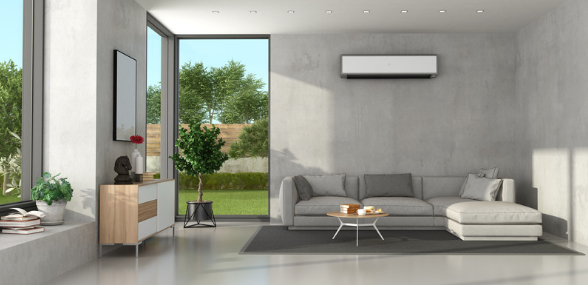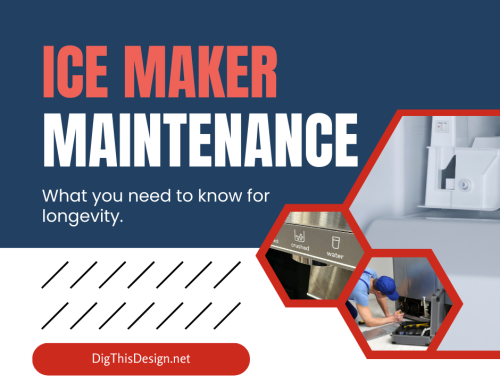Air conditioners are an essential component of our contemporary lifestyles, as they make it possible for us to have a pleasant time inside even when the outside temperature and humidity levels are high. On the other hand, nothing may be more aggravating than having your air conditioner shut off by itself, making you suffer from heat and discomfort. This widespread problem may manifest itself at any moment, and there are several potential reasons why it occurs.
When trying to troubleshoot and fix a problem with your air conditioner, having a solid understanding of why it shuts off on its own is essential. In this piece, we will discuss various factors that might lead to the automatic shutoff of an air conditioner, as well as provide a few potential remedies to the resulting issue.
Today, we asked the experts at Autumn Air Heating and Cooling for their professional explanation.
Why Does My Air Conditioner Turn Off By Itself?

Let us take a look at some of the most common issues with air conditioners that make them turn off.
Thermostat problems
The thermostat is an integral part of an air conditioning system. It is responsible for regulating the room’s temperature and turning on and off the air conditioner accordingly. If the thermostat malfunctions, the air conditioner may shut off automatically. Incorrect calibration is one of the most common thermostat problems. When the thermostat is incorrectly calibrated, it may provide an inaccurate temperature reading, causing the air conditioner to shut off prematurely.
Replacement is the best solution for a malfunctioning thermostat. However, you can re-calibrate the thermostat before replacing it. Most thermostats include a calibration feature that adjusts the temperature reading. You can also try cleaning the thermostat and ensuring that the wiring connections are secure and firm.
Dirty Air Filter
In an air conditioning system, the air filter filters the air circulating throughout the chamber. The air filter prevents dust, grime, and other particles from entering the air conditioning system. The air conditioner may automatically shut off when the air filter is clogged. This occurs because the filthy air filter restricts circulation, resulting in the freezing of the evaporator coils. The air conditioner will shut off to prevent damage if the coils freeze.
Clean or replace the air filter regularly to remove grit and grime. According to usage, experts recommend cleansing or replacing the air filter every one to three months.
Low refrigerant levels
In an air conditioning system, the refrigerant captures interior air heat and disperses it outside. When there is insufficient refrigerant, the air conditioner will not function properly. Low levels of refrigerant can cause the air conditioner to shut down automatically, as the system will detect the issue and close it down to prevent further damage.
If you suspect that the system’s refrigerant levels are insufficient, you should have a professional air conditioning technician inspect the system. The technician will inspect for leakage and add the necessary refrigerant to ensure that the air conditioning system functions properly.
Overheating
The safety features of air conditioning systems prevent them from overloading. Overheating an air conditioning system can cause the system to shut down automatically. Several factors, including filthy condenser coils, low refrigerant levels, and restricted ventilation, can cause overheating.
Regularly cleaning the condenser coils will ensure they are free of grime and detritus. Ensure adequate ventilation is present around the air conditioning system. If you suspect that the refrigerant levels are insufficient, you should have a professional evaluate the air conditioning system.
Electrical Issues
Problems with the electrical supply might cause an automatic shutdown of an air conditioning system. Electrical issues may arise from a wide variety of sources, including loose connections in the cabling as well as faulty capacitors and relays.
It is recommended that you get in touch with a qualified air conditioning expert to have the system inspected and the electrical issue identified. A thorough examination of the wire connections will be performed by the expert, who will then repair any malfunctioning electrical components.
Blockage in the drain line
In an air conditioning system, the drain line is responsible for emptying the condensate from the evaporator coils. When the discharge line is obstructed, water can build up and flood the air conditioning system. This can activate a safety feature that shuts down the system to prevent additional damage.
Clear the drain line on a regular basis to prevent blockages. Use a wet-dry vacuum or a drain cleansing solution to remove the obstruction. Call a professional air conditioning technician to clear the discharge line if the obstruction is severe.
Dirty Evaporator Coil
Evaporator coils are the components of an air conditioning system that are responsible for drawing heat from the air being conditioned. If the coils are dirty, they are unable to absorb heat as efficiently, which causes the air conditioner to turn off by itself.
If you clean the evaporator coils on a regular basis, you can guarantee that they are clear of dirt and other debris. You may clean the coils with either a soft brush or a dedicated coil-cleaning tool. If the air conditioner’s coils are dirty, it’s better to get in touch with a qualified air conditioning specialist to clean them.
Conclusion
Understanding the potential causes of an air conditioner that turns off by itself can help you resolve the issue. The most frequent causes of an air conditioner turning off by itself are thermostat problems, congested air filters, low refrigerant levels, overloading, electrical problems, clogged discharge lines, and filthy evaporator coils.
Regular maintenance and inspection can prevent the majority of these problems. Always contact a professional air conditioning technician if you are uncertain about how to repair the problem. A professional can diagnose the problem and recommend the most effective solution to restore your air conditioner’s efficiency.
Other posts you might enjoy:
How To Keep Your HVAC Unit In Stellar Condition
Air Conditioning Stop Running? Tips for Troubleshooting the Problem
What To Expect During an HVAC System Installation





